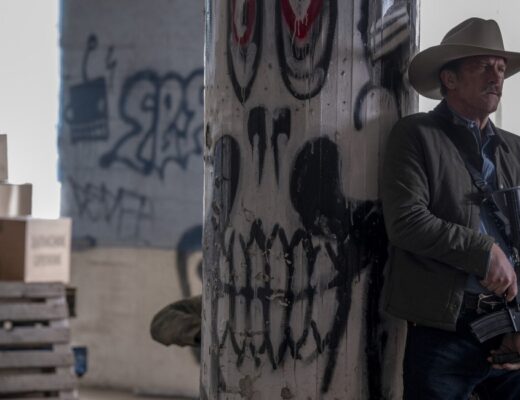Let’s get the obvious out of the way: Public Enemy’s It Takes a Nation of Millions to Hold Us Back is a masterpiece. The inception of old-school rap bore a political consciousness (Grand Master Flash’s The Message), as did the defining new school record (RUN-D.M.C.’s self-titled debut), which PE’s debut Yo! Bum Rush the Show structurally cribbed while injecting an impressive amount of swagger. Chuck D and his not-so-merry band of shit starters simply built on those intuitions and merged the political and musical text. Add to that a killer live show replete with Motown inspired background dancers performing black militancy, and the logical question becomes: what could be made of such ne’er-do-wells? Public Enemy themselves were the text, which is probably why supporting member Professor Griff’s highly problematic soundbites (e.g. anti-Semitic hate speech) nearly imploded the group not long after this record was making waves. The irony was always there: for as much as Chuck D and Flava Flav denounce the critics, the industry, and members of polite society ready to misinterpret their agitprop art without provocation, they were acutely aware of how media messaging worked, corruption and all. It’s here that the Bomb Squad production team essentially destroyed rock and roll with this abrasive sound, pummeling the harmonies of popular music into shrieks and — in tandem with Flav’s ad-libs and D’s incredulous repetition of lyrical concepts — created a memetic framework for a new type of rapper. Moreover, the universe of insight they ushered into the mainstream with regards to being “too black, too strong,” was nothing less than a coup — no more than five years later the kind of sampling they specialized in became restricted by court precedent; gangster rap turned their rage inward while political rap spun more niche and intellectual rather than visceral. Subsequently, the larger economic system would favor “sucka MCs” and the white label owners who coerced them into unfair contracts (a sad reminder at how little our world has changed in nearly 30 years).
“Rebel Without a Pause” is the album’s mission statement: present is an unrelenting beat, replete with increasing pitch sounds like a tea kettle ready to explode, before Chuck D proclaims, “soul, rock and roll / coming like a rhino,” and also, “the beat is designed so I can enter your mind.” The track’s live-show narrative framework makes homilies of Chuck’s rants, and the change of tempo from their debut gives these anti-sermons urgency — a fact they learned playing live. Chuck’s insane flow on the second verse of “Bring the Noise” — in part with Rakim whom he later shouts out — single-handedly redefined rap just in time for the 90s. Even the minute-long skits are wonders of plunderphonics and savvy acts of agitation, also serving to contextualize the songs to follow. Despite the confrontational nature of some samples, and the literal instructions the song titles provide to “Bring the Noise” and “Don’t Believe the Hype,” D approaches themes more impressionistically than explicitly. “She Watch Channel Zero?!” harshly shames mindless consumerism mostly by the power of repeatedly calling all T.V. “garbage” over an apocalyptic Slayer sample. More complex are tracks like “Black Steel in the Hour of Chaos,” which tells a story of incarceration stemming from conscientious objection to war, meanwhile bursting with suggestive lyrical memes. Perhaps most famous is: “Death row? What a brother know?”, but each one skirts around the double-standard that black folk deal are confronted with — “what it takes for peace.” This choice, to come out either “clean or alive,” is heightened by a proto-horrorcore piano sample and the imagery of a prison riot. Despite what some critics — who, by the way, get utterly destroyed on “Don’t Believe the Hype” — might say, no moment on this record explicitly calls to follow any specific demagoguery, but rather to take that shock to the system and engage. Flav is the key ingredient, representing the very “sucka” who both these critics and society want to see. “Cold Lamping,” four minutes of genius absurdity and free-association, demonstrates how moldable his persona is, an essential attribute to remember on “Caught, Can I Get a Witness?” Chuck bemoans his image as a violent militant, only for Flav to assert his desire to hold the jury hostage, followed by an extra hyperbolic “yeah boy!,” indulging their hypocrisy to reveal America’s hypocrisy. But more than that, it’s a rebel yell that refuses to bootlick and instead asks of listeners to work it out for themselves.
Part of Kicking the Canon – The Album Canon.







